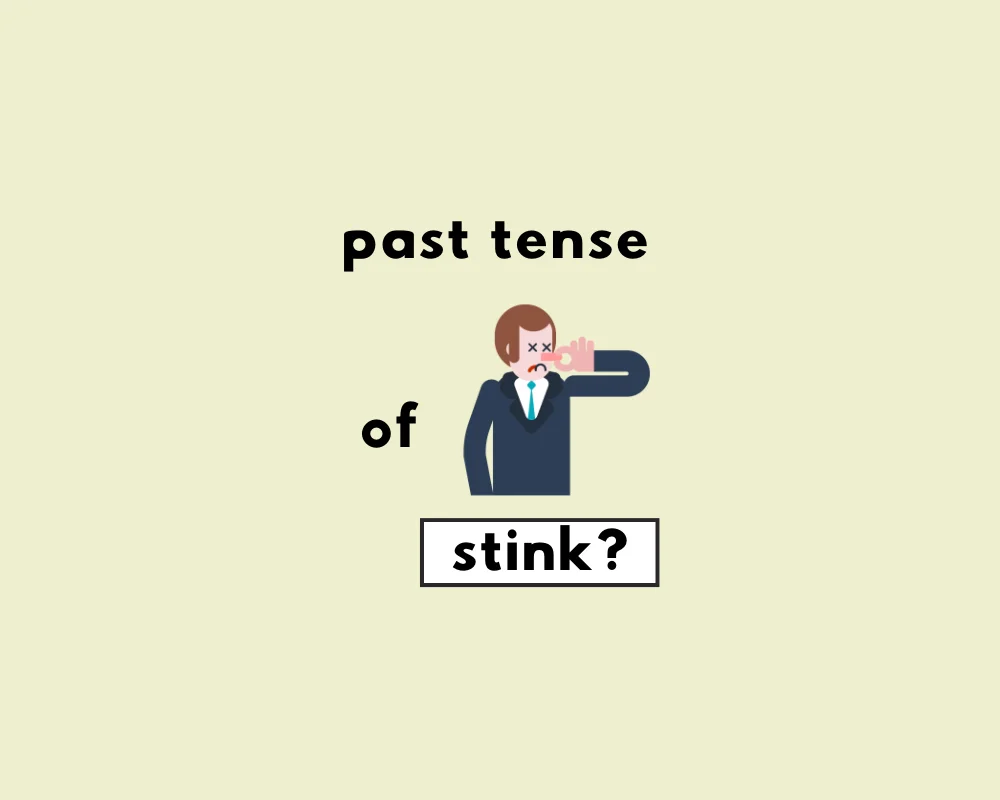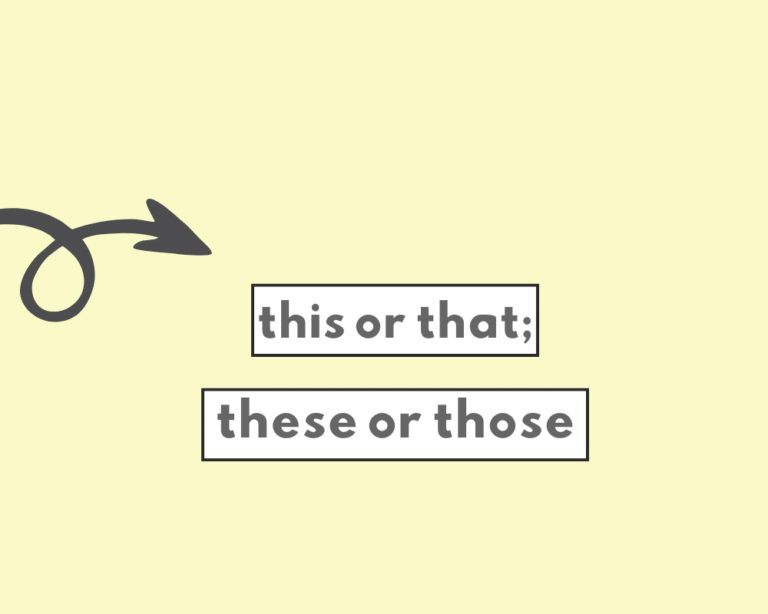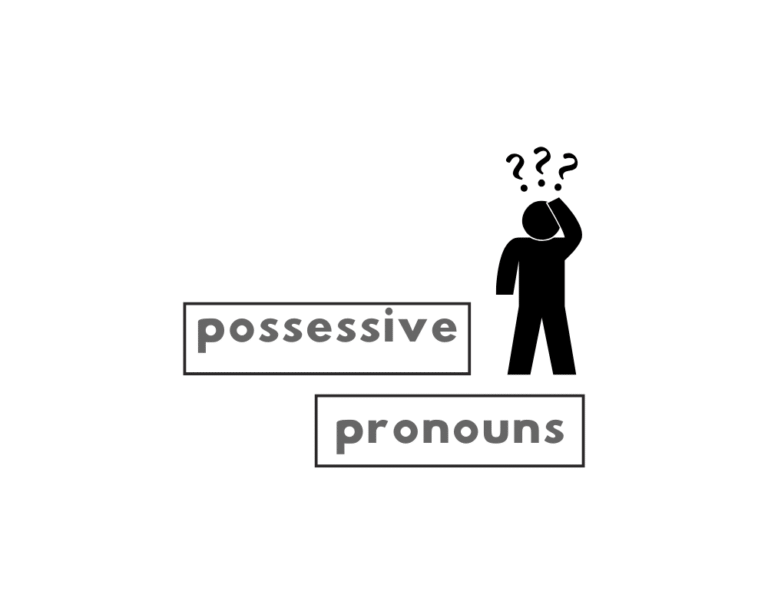
What’s the past tense of “stink”?
Is it stink, stank or stunk up the room? Can you sniff out the correct answer?
The garbage can stank after sitting in the sun all day.
The car has stunk of old fries ever since our road trip.
The garbage can stunk after sitting in the sun all day.
The car has stank of old fries ever since our road trip.
If not, no sweat. We’ll explain the differences and the correct use of the past tense of stink. But the first order of business: let’s define the subject topic.
The intransitive verb stink is defined by the Oxford Learner’s Dictionary as to, “stink (of something) to have a strong, unpleasant smell: Her breath stank of garlic.“
| Tense | Examples: forms of “stink” used in sentences |
| present | It stinks in here! |
| past | The room stank of mold and old books. |
| past participle form | The refrigerator has stunk ever since she bought that container. |
Forms of the verb “stink”
| present | past | future | |
| simple | I stink | I stank | I will stink |
| continuous | I am stinking | I was stinking | I will be stinking |
| perfect | I have stunk | I had stunk | I will have stunk |
| perfect continuous | I have been stinking | I had been stinking | I will have been stinking |
“Stank” vs. “stunk”, when to use both
The difference is in the past simple tense being a tense (slice of time) in which an action or event occurred. The past participle is a form of verb that does not, on its own, convey tense, and so uses a helping or auxiliary verb, such as had/have/has. Beyond that, the past participle forms the passive voice, and one of the perfect tenses.
Other irregular verbs like “stink”
| base verb | past tense | past participle |
| stink | stank | stunk |
| shrink | shrank | shrunk |
| sing | sang | sung |
| sink | sank | sunk |
| ring | rang | rung |
| spring | sprang | sprung |
| drink | drank | drunk |
Examples of “stink” used in sentences
| Word Form | Examples |
|---|---|
| Other | The bathroom stinks.
The food is good at that restaurant, but the service stinks. It stinks of smoke in here. Don’t go in there—it stinks. ‘What do you think of the idea?’ ‘I think it stinks.’ |
Associate stink/stank/stunk with drink/drank/drunk. Stank is simple past (like drank), and stunk is the past participle used with “has” or “have” (like drunk).
Sentences with “stank” (past tense)
| Word Form | Examples |
|---|---|
| Other | The whole place, even the performers, stank of decay.
They were on drugs, and stank of alcohol. He had been disappointed with the first draft, which he reportedly said stank. The whole business stank of corruption. Her breath stank of garlic. |
Example sentences with “stunk” (past participle)
| Word Form | Examples |
|---|---|
| Other | My shoes have stunk ever since returning from our walk along the swamp’s edge.
Why then had he allowed a man like Jeff, who must have stunk of ambition from the outset, access to his Loop? Clive Barker. The cooler had stunk for days after the boys returned from their fishing trip. “Everywhere must have stunk of burning weeds!” The refrigerator has stunk ever since she threw the container out. |
| Word | Similar words |
|---|---|
| the word ‘stink’ | smell, fetor, noisome, stench, odor, foul odor, offensive smell, malodor |
Origin of the word stink
From etymology online on stink (v.):
Old English stincan, of West Germanic origin; related to Dutch and German stinken, also to stench.
Other commonly confused verb tenses
- What’s the past tense of spread?
- What’s the past tense of lead?
- What’s the past tense of choose?
- What’s the past tense of fly?
- What’s the past tense of lay?
- What’s the past tense of drive?
- What’s the past tense of draw?
Learn more about verbs
- What are regular and irregular verbs?
- Transitive and intransitive verbs?
- What are verbs?
- What’re personal pronouns?
- What’s the difference between they’re, their, and there?
- Whose vs who’s?
Worksheet
According to the blog post, which word correctly fills the blank in this simple past tense sentence: “Her breath ________ of garlic.”?
Which form of ‘stink’ is typically used as the past participle with auxiliary verbs like ‘has’ or ‘have’ for perfect tenses?
The blog post compares the forms of ‘stink’ to which other irregular verb to help remember the pattern?
Which of the following sentences correctly uses the simple past tense form of ‘stink’ as described in the post?
Based on the post, which sentence demonstrates a common error when using the past participle of ‘stink’?
The room ________ of mold and old books last week.
Ever since the fish spoiled, the freezer has ________ terribly.
The old pipes ________ whenever someone used the shower.
I think it ________ of smoke in here right now.
He had been disappointed with the first draft, which he reportedly said ________.
FAQs
What’s the simple past tense of “stink”?
+
When do I use ‘stank’ or ‘stunk’?
+
Can “stunk” be used as simple past?
+
What is the past participle of “stink”?
+
Are there verbs like stink/stank/stunk?
+
Yash, D. "What’s the Past Tense of Stink? Stank vs Stunk." Grammarflex, Jun 25, 2025, https://www.grammarflex.com/stank-or-stunk-whats-the-past-tense-of-stink/.
Sources
-
Etymology online, origin of stink.










